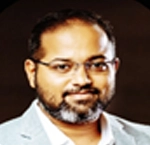About the Program
The primary objective of ICTCT-2025 is to provide a forum for researchers, industry professionals, and academia to share their insights, exchange ideas, and collaborate on the latest developments and transformative aspects of computing technologies. The conference aims to foster innovation, inspire new research directions, and explore the potential impact of these technologies on various domains, ultimately contributing to the advancement of society.
Objectives of the Program
The primary objective of ICTCT-2025 is to provide a forum for researchers, industry professionals, and academia to share their insights, exchange ideas, and collaborate on the latest developments and transformative aspects of computing technologies. The conference aims to foster innovation, inspire new research directions, and explore the potential impact of these technologies on various domains, ultimately contributing to the advancement of society.
Expected outcomes of the programme
ICTCT-2025 aims to advance innovative research, foster interdisciplinary collaboration, and bridge academia and industry. The conference will explore emerging trends in transformative computing, promote ethical and sustainable practices, and offer publication opportunities. It seeks to influence policy, enhance research capabilities, and drive societal impact through cutting-edge technological solutions.
Important Dates
| Events | Dates |
|---|---|
| Important Dates | 28th - 29th August 2025 |
| Time | 09:00 AM to 05:00 PM |
| Target Audience | Faculty members, Industry professionals, Research scholars and UG/PG Students |
| Type of program | Online / Offline: Hybrid |
| Venue | AIGS(Hall of Fame/ MBA Seminar Hall, Mechanical Seminar Hall, Auditorium) |
Key Dates
| Event Details | Dates |
|---|---|
| Paper Submission Deadline | June 02, 2025 |
| Acceptance Notification | June 28, 2025 |
| Camera Ready papers | July 07, 2025 |
| Early bird registration | on or before July 28, 2025 |
| Author Registration (Last Date) | August 11, 2025 |
| Conference Dates | 28th & 29th August 2025 |
| Mode of Payment (link to be created) | Online |
Committee Members
- Shri B M Reddy, President, JMJ Education Society.
- Shri B. Premnath Reddy, Chairman, Acharya Institutes.
- Smt. Shalini Reddy, Executive Director, Acharya Institutes.
- Shri Krishna Basani Reddy, Managing Director, Acharya Institutes.
- Dr. Gurunath Rao Vaidya, Principal, Acharya Institute of Graduate Studies
International Advisory Committee:
- Dr. Omar Chowdhury, Professor – CSE, Stony Brook University, New York, USA
- Dr. Saad Harous, Professor – CSE, College of Computing and Informatics, Sharjah
- Dr. Vivekananthan, Deputy Dean, Faculty of Computer Science and Multimedia, Lincoln Univ. College, Malaysia
- Dr. Rajakumar Murugesan, Professor – CSE, Taylor's University, Malaysia
- Dr. Sangita Babu, Associate Professor, Dept. of Computer Science, King Khalid University, Saudi Arabia
- Dr. Vijayanandh Rajamanickam, Lecturer in Computer Science, Department of Computer and Information Technology, The University of the West Indies, St. Augustine
- Dr. Debabrata Samanta, Assistant Professor, Rochester Institute of Technology – RIT Global Campus, Kosovo, Europe
- Dr. Hari Mohan Rai, Research Assistant Professor, School of Computing, Gachon University, South Korea
- Dr. Shrikaant Kulkarni, Adjunct Professor, Faculty of Business, Victorian Institute of Technology, Melbourne, Australia
- Dr. Jasmine Gnanadurai, Associate Professor, Department of Computer Science, George Fox University, Oregon, United States.
- Dr. Somnath Banerjee, Data Engineer, Business Intelligence & Solution and Product Delivery Leader, American Family Insurance, Madison, Wisconsin, United States.
National Advisory Committee:
- Dr. Vakula Rani, Professor, Head I&E, Dept. of MCA, CMR Institute of Technology, Bengaluru
- Dr. Prabhakar, Professor, School of Computer Science and Engineering, Reva University, Bengaluru
- Dr. Gladston Raj S, Associate Professor & HoD in Govt. College, Trivandrum
- Dr. Viswanathan, Associate Professor, Reva University, Bengaluru
- Dr. Manjula Sanjay Koti, Professor & HoD in Sir Mvit, Bengaluru
- Dr. G N K Suresh Babu, Professor - AI & DS, Prince Dr. K. Vasudevan College of Engineering and Technology, Chennai
- Dr. S.G. Shaila, Professor – CSE, Dayananda Sagar University, Bengaluru
- Dr. R. Vadivel, Professor – IT, Bharathiyar University
- Dr. Shreedhara K.S., Professor – CSE, BDT College of Engineering, Davengere
- Dr. Prakash B R, Professor, HoD, Dept. of CS, Govt. First Grade College, Tiptur
- Dr. E. Sivasankar, Associate Professor, Department of Computer Science & Engineering, National Institute of Technology, Tiruchirappalli
- Dr. P. Karthikeyan, Associate Professor, School of Computer Science and Engineering, RV University, Bengaluru
- Dr. B. Surendiran, Associate Professor, Department of CSE, National Institute of Technology, Puducherry
- Dr. N. Ganesh, Senior Associate Professor, School of Computer Science and Engineering, Vellore Institute of Technology (Deemed to be University), Chennai
- Dr. Subrata Chowdhury, Associate Professor, Department of CSM, Sreenivasa Institute of Technology and Management Studies, Chittoor, Andra Pradesh
- Dr. B. Manimekala, Asst. Professor, Christ University, Bengaluru
- Dr. Rosita Kamala F, Associate Professor, Presidency College, Bengaluru
- Dr. Surendar, Associate Professor, Community College, Bengaluru
- Dr. Snehalatha, Associate Professor, Sambhram College, Bengaluru
- Dr. Keshav Kaushik, Associate Professor, Sharda School of Computer Science & Engineering, Sharda University, Greater Noida, U.P
- Dr. U. Kumaran, Assistant Professor, Amrita Vishwa Vidyapeetham (Deemed to be University), Bengaluru
- Dr. Ashwin Dobariya, Associate Professor, Faculty of Computer Applications, Marwadi University, Rajkot, Gujarat
- Dr. A S Prasanna Venkatesan, Asst. Professor, Govt. Arts College, Dharmapuri.
- Dr. Abdul Raffie, Asst. Professor, Dept of Psychology, VIT, Vellore
- Prof. Devasis Pradhan, Assistant Director of Research, Acharya Institutes, Bengaluru
- Dr.Vibinchandar, HoD, Dept. of MCA, Acharya Institute of Graduate Studies, Bengaluru.
- Dr. A R Deepti, Professor, Dept. MCA, Acharya Institute of Graduate Studies, Bengaluru.
- Dr. M. Balamurugan, Associate Professor
- Mr. Rajesh Rao K, Asst. Professor
- Ms. Farzeen Basith, Asst. Professor
- Mr. G K Narasimha Murthy, Asst. Professor
Resource Person Details

Dr. Sujith Jayprakash
Designation : Associate Vice President, Britts Imperial Group and Director (Internationalisation), American Imperial University, UAE

Arun Suresh
Designation : Founder CEO of Farm logics, Ernakulam, Kerala
Registration
Participants may register their names using the form at the bottom of the page. The confirmation regarding participation will be sent through email. To ensure publication of a paper in the Proceedings, at least one author has to register by submitting a normal registration fee within the deadline.
Registration Fee (Participants/Authors Registration Fees)
| Category | Amount |
|---|---|
| Academician/ Scientists/ Research Scholars | Rs.9,000 |
| UG/ PG Students | Rs.2,500 |
| Industry Person / Other Delegates | Rs. 10,000 |
| Foreign Author | $150 USD |
Indexed in
All accepted and registered papers for ICTCT 2025 will be published in series under Springer Nature International
Submission Guidelines
Prospective authors are invited to submit original, unpublished research papers that align with the theme and tracks of ICTCT-2025. All submissions must adhere to the following guidelines:
Full papers: 10 to 12 pages (including references, tables, and figures). Short papers: 6 to 8 pages.
Plagiarism Policy
All submitted papers will be checked for plagiarism using tools such as Turnitin. A similarity index above 10% (excluding references) will result in immediate rejection.
For Authors/Attendees:
All accepted papers should have at least one author registered. Additional paper requires additional registration. Only presented papers will be eligible for publication.
Call for papers but not limited to
| Title | Topics |
|---|---|
| Artificial Intelligence | Machine learning, Deep learning, Natural language processing, Computer vision, AI ethics and accountability |
| Big Data | Data analytics, Data management, Data visualization, Data mining, Data warehousing |
| Cloud Computing | Cloud architectures, Cloud security, Cloud performance optimization, Serverless computing, Cloud-native applications |
| Edge Computing | Edge intelligence, Edge security, Edge-cloud collaboration, Edge computing frameworks |
| Internet of Things (IoT) | IoT architectures, IoT protocols, IoT applications, IoT analytics, IoT security |
| Quantum Computing | Quantum algorithms, Quantum machine learning, Quantum cryptography, Quantum simulation, Quantum error correction |
| High-Performance Computing | Parallel computing, Distributed computing, GPU computing, Exascale computing, Performance modelling and optimization |
| Cybersecurity | Network security, Cryptography, Blockchain security, Cyberthreat intelligence, Privacy-preserving technologies |
| Human-Computer Interaction | User experience design, Natural user interfaces, Augmented and virtual reality, Affective computing, Accessibility |
| Sustainable Computing | Green computing, Energy-efficient computing, Sustainable data centres, E-waste management, Circular economy in computing |
| Emerging Applications | Smart cities, Industry 4.0, Precision agriculture, Personalized medicine, Autonomous systems |
| Future Directions | IT governance and compliance, Risk management in IT, Projects Knowledge management in technology environments, Technology management and innovation, Change management in IT organizations |